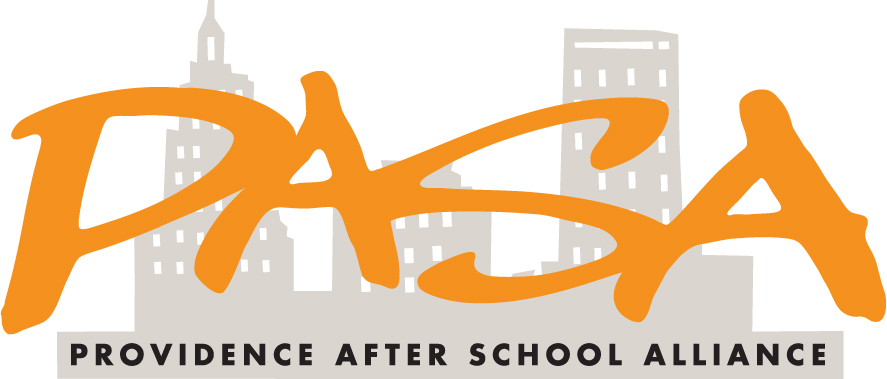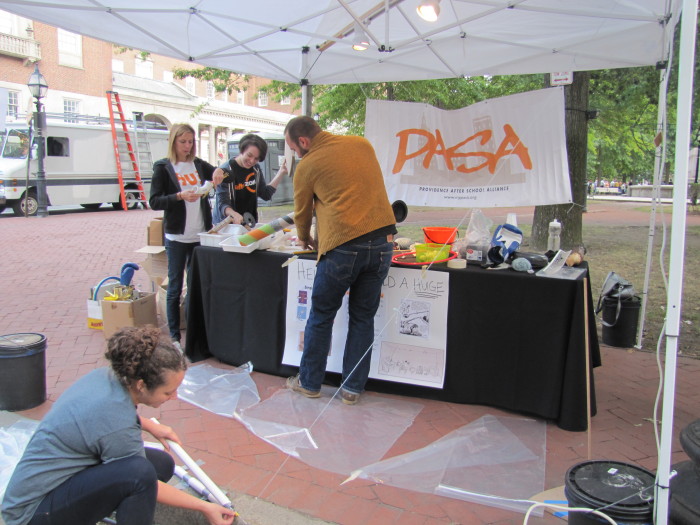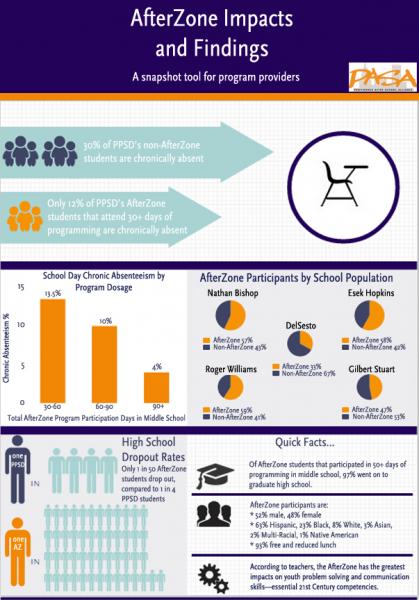PASA collaborates with schools and teachers to offer a full day/full year of learning that’s hands-on, enriching, and fun. We also work closely with youth, both formal and informal educators, families, policy makers, and community members to develop after-school and expanded learning programs that get young people exited, keep the coming back, and put them on a path for success.
PASA is also committed to the idea that sharing data and best practices from local and national sources helps to contribute to making stronger and more sustainable after-school and expanded learning systems. To see our approach to using local and industry research, as well as to see a list of up-to-date resources, click here.
PASA’s program quality standards, professional development opportunities, use of program data,industry research, and assessment tools work in concert to ensure that our hands-on approach to learning is not only fun, but also effective.
PASA’s quality improvement strategy is founded on quality standards and measurements developed by PASA and its community partners. Together, we developed quality standards divided into five major categories:
Health, Safety, and Environment
Relationships
Programming and Activities
Staffing and Professional Development
Administration
The resulting Rhode Island After-School Quality Standards are designed to provide a standard for programs to measure themselves against in order to work toward continuous progress and improvement. They are measurable through ongoing assessment, tracking, and meaningful observation, applicable to any age group and any type of after-school program, but most importantly they are achievable.
All of PASA’s program providers embrace the Rhode Island After-School Quality Standards.
Measuring Quality
PASA continues to develop its quality improvement system in partnership with the David P. Weikart Center for Youth Program Quality (CYPQ), a division of the Forum for Youth Investment. CYPQ provides valuable technical assistance and support as PASA grows and develops use of the RIPQA and its accompanying quality coaching model statewide. Learn more about the tool, request a copy from the Weikart Center.
The RIPQA is a self-assessment tool that combines the validated Youth PQA (Form A) with a locally developed supplement that addresses the unique needs and priorities of Rhode Island after-school providers (Form B).
PASA uses the Rhode Island Program Quality Assessment Tool (RIPQA) to measure the performance of all of our program providers at both the middle and high school level, twice a year.
Each program site is assigned a Quality Advisor who participates in program observations, facilitates quality improvement planning, provides one-on-one technical assistance to each site as need based on the recommended action steps.
Data Tracking
Data tracking is crucial for knowing what programs young people are attending, how often, and for how long. Data also plays a key role in short- and long-term program evaluation.
PASA’s participant tracking tool, youthservices.net operates as a citywide data-sharing system that allows individual program providers to manage their programs on a day-to-day basis. It also ensures that PASA can successfully manage the AfterZone and Hub initiatives.
At the site level, the tool is used to track enrollment, retention, and attendence in real-time. At the system level, the tool provides data about student attendance, program popularity, and student participation—enabling PASA to successfully coordinate daily transportation for the AfterZone with the District transportation team.
Data is also used to help make adjustments to overall program quality, while allowing PASA and our partners to see student trends that affect programmatic decisions. It is also confidentially linked to school department data to understand the impact that the AfterZone and Hub have on student outcomes.
Download this AfterZone Impacts Infographic
PASA has created this snapshot tool that culls data from the Providence Public School District, as well as long-term data collected by PASA about our AfterZone participants. This data shows that regular participation in AfterZone programs has considerable impacts on chronic absenteeism and high school graduation rates.


